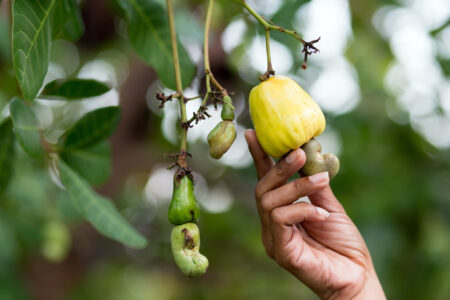The central bank of Tanzania released the monthly economic review for May 2021 and it has reviewed different sections of the economy with a keen eye.
READ:Tanzania clock’s $3Bn as gold prices soar
Inflation
In this section of the economy, the report showed that, during April 2021, the headline inflation rate remained low and within the country and regional limits.
“Twelve-month headline inflation was 3.3 per cent in April 2021, almost the same as in the preceding month and the corresponding period of 2020,” the report noted.
However, on a month-to-month basis, headline inflation stood at 0.5 per cent, which is a bit higher than the rate registered in the corresponding period of 2020 inflation is projected “to remain within the targeted band for 2020/21”.
Further, the core inflation showed that the index accounts for the largest share in consumer price index (CPI) stood at 3.5 per cent, which is the same as the last month, while all “items less food and non-alcoholic beverages (non-food inflation) was 2.7 per cent. Energy, fuel, and utilities inflation rose to 2.3 per cent from 1.1 per cent in March 2021, mainly driven by an increase in prices of cooking gas, diesel and petrol,”
Money and Credit
The report painted a colorful detail in this section, whereby the money supply responded positively to the sustained implementation of accommodative monetary policy.
“Accordingly, extended broad money supply (M3) grew at an annual rate of 7.8 per cent in April 2021, compared with 6.8 per cent and 12.2 per cent in the preceding month and the corresponding period of 2020, respectively. Broad money supply (M2) grew by 7.1 per cent compared to 9.3 per cent in the preceding month and 13.9 per cent in the corresponding period of 2020,” central bank report noted.
The report went further and analyzed the money and supply angle even further, showing how domestic credit, extended to the private sector and central government, grew by 12.9 per cent per year in April 2021, which is rather higher than 10.6 per cent and 4.4 per cent in March 2021 and April 2020 respectively.
“Credit extended by banks to the private sector grew by 4.8 per cent, a positive recovery from 2.3 per cent in the preceding month, but slightly below 5.8 per cent registered in the corresponding period of 2020,” the report argued.
Interest rates
On the interest rates. Things stayed rather the same. “Interest rates charged on loans and offered on deposits remained broadly unchanged in April 2021, with overall and one-year lending rates averaging 16.58 and 16.05 per cent respectively. Overall and one-year time deposits interest rates averaged 6.95 per cent and 8.77 per cent, respectively,” the report noted.
Hence, the interested rates are expected to be reduced by the sustained accommodative monetary policy and ongoing regulatory measures, which will be taken by the bank to reduce the cost of funds and increase financial intermediation.
In the same context, the report argued that, given the inflation rate of 3.3 per cent in April 2021, term deposits and lending interest rates remained positive in real terms.
Government budgetary operations
Tanzania has been a keen observer and performer when it comes to budgetary operations over the past years, The report noted that domestic revenue performance was impressive in the first ten-month of 2020/21, despite being below the target except for December 2020.
“In April 2021, domestic revenue amounted to $654 million, being an increase of 7.5 per cent from the amount recorded in April 2020. Tax revenue increased by 7.8 per cent to $541 million. Non-tax revenue was $83.6 million while collections from Local Government Authorities own sources amounted to $29.3 billion” the report argued.
Debt
Tanzania has been stringing along with a heap of debt over the past years. According to the report, the national debt stock stood at $31 billion at the end of April 2021, which is an increase of $575.3 million and $2.91 billion from the preceding month and the corresponding month in 2020.
“Public debt (external and domestic) constituted 82.8 per cent of the total national debt, while external debt (public and private) accounted for 76.5 per cent of the stock,” BoT report noted.
However, the external debt provided another room to understand the report, the stock of external debt, made up of the public and private sector, stood a more than t $24.4 billion at the end of April 2021, which was an increase of $77.9 million and more than $1.9 billion from the level recorded in the preceding month and the corresponding month in 2020.
READ: Tanzania projects economic growth of 5.6%
Exports
According to the report, the performance of the export was moderate, as the value of goods and services was recorded at around $8.5 billion during the year ending April 2021, which is lower than the $9.55 billion recorded in the corresponding period in 2020. The downturn in performance was argued by the report to be explained by “a decrease in services receipts”.
“During the year ending April 2021, the value of goods exports amounted to $ 6,349.2 million, an increase of 12.0 per cent compared to the amount recorded in the corresponding period in 2020, owing to satisfactory performance in non-traditional exports,” the report argued.
Further down the line, the report noted that the value of non-traditional exports increased to around $ 5.47 billion from $ 4.33 billion registered in the corresponding period in 2020, mainly attributed to a good performance of manufactured goods, horticultural products particularly edible vegetables and fruits, and all minerals except diamonds.
“Gold exports, which accounted for 50.1 per cent of non-traditional exports, increased by $ 594.0 million to USD 3,030.5 million, owing to higher prices in the world market and the Government’s efforts to closely monitor the mining sector. On a month-to-month basis, the export value of non-traditional exports rose to $ 481.0 million from $ 420.0 million in April 2020, mostly explained by an increase in mineral exports,” the central bank report noted.
Imports
On imports, the reports showed that, during the year ending April 2021, imports of goods and services decreased to more than $9 billion from $10 billion in the corresponding period of 2020. Thus, the review argued that this was driven by a decline in import value of oil, transport equipment, and building and construction materials.
“The value of goods imports declined to $ 8,109.3 million during the year ending April 2021 compared to $8,754.0 million in the corresponding period in 2020. The larger decrease was registered in oil as well as building and construction. The value of oil imports declined by 22.4 per cent to $ 1,353.3 million mainly driven by a fall in oil prices in the global market and accounted for 16.7 per cent of goods imports. Every month, however, goods import bill increased to $ 818.3 million from $562.5 million recorded in April 2020, explained by an increase in imports of oil,” the report showed.
According to the central bank, Tanzania’s economy is expected to grow by 5.7 per cent in 2021.
READ:Tanzania Increasing Internet Service Providers











